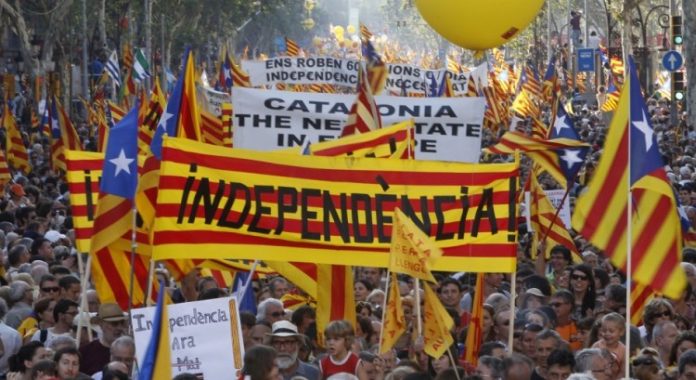
Barcelona/Madrid – Shortly after Catalonia declared independence from Spain on October 27, the senate in Madrid voted to trigger Article 155 of the Spanish constitution, removing Catalonia’s autonomy.
In his speech to the senate requesting that deputies approve the proposal, the Spanish prime minister Mariano Rajoy justified his request in the face of “a continuous process of anti-democratic decisions” in Catalonia.

One of the first measures required by Article 155 will be the sacking of the Catalan president, Carles Puigdemont, which would pave the way for Rajoy to call elections within six months.
The Economy Ministry has already increased its control over regional finances, to block the use of state funds to organise the secession bid, and started paying directly for essential services.
Under the new proposal, Madrid will take full financial control.
It is also possible that some pro-independence Catalans will stop paying their taxes to the Spanish treasury.
So they’re not independent?
Ultimately this depends on how far both sides are willing to go. There will almost certainly be resistance in Catalonia to any move to impose Madrid rule over the province, and violent clashes that have rocked the region this month are likely to unfold again.
It is not clear whether a snap regional election will resolve the crisis.
An opinion poll published by the El Periodico newspaper on Sunday showed a snap election would probably have results similar to the last ballot in 2015, when a coalition of pro-independence parties formed a minority government.
Other opinion polls have shown Catalonia is almost evenly split between pro- and anti-independence supporters.
In response to the Catalan parliament’s vote, Rajoy went on Twitter to ask all Spaniards for calm and to note that the rule of law would be restored in Catalonia.
The vote closed down the one conciliatory amendment which had been proposed by the Socialists in the Madrid senate to freeze the triggering of Article 155 if elections were called in Catalonia. Instead, the vote in favour of independence was seen as a slap in the face for dialogue.
What about the European Union?
The EU has been somewhat cryptic in its responses to the situation but has consistently said it supports Spain’s constitution – effectively backing the Spanish government but without sounding overly partisan.
The European Commission hasn’t offered to mediate the situation, as has been suggested by some observers. Donald Tusk, the European Council President, said “nothing had changed” in the wake of the declaration of independence.
The head of the European Union’s legislature condemned the Catalan parliament’s vote said it would not be recognized in the EU.
EU Parliament President Antonio Tajani said that the Catalonian parliament’s move was “a breach of the rule of law.” He added that “no one in the European Union will recognize this declaration.”
Will other countries recognise the declaration?
Britain has already said it won’t recognise the new declared Catalan state and other countries, who have their own separatist movements and do not want to set a precedent, are almost certain to follow.
Germany, France and Cyprus are among other European countries that have already made clear they back Spanish unity. The US State Department also issued a similar statement.
What about the police and the threat of force?
Catalonia’s main secessionist groups have called for widespread civil disobedience. They also instructed civil servants not to obey orders from Madrid and respond with peaceful resistance. It is unclear whether such calls will be followed or not.
Spain’s government said it was not planning to make any arrests, but it is unclear how it will proceed if the current regional administration staff refuse to leave their offices.
A growing number of analysts fear this could lead to a physical confrontation if national police, who used heavy-handed tactics to thwart during the initial vote on independence, seek to intervene.
One of the main problems over the implementation of direct rule will relate to Catalonia’s own police forces, the Mossos d’Esquadra.
Mr Rajoy has said the Mossos chief will be fired. But a group of Mossos favouring independence has already said they would not follow instructions from the central government and would not use force to remove ministers and lawmakers from power.
Several officers told Reuters they believed the 17,000-strong force was split between those who want independence and those who oppose it.
The Mossos, whose chief is under investigation on suspicion of sedition, will have to act on direct orders from their new bosses. If deemed necessary, Mossos officers may be replaced by national police.
Could the Spanish government punish Catalan leaders?
Jordi Sanchez and Jordi Cuixart, the leaders of the two biggest pro-independence grassroots movements, have already been arrested and jailed by Spanish authorities.
A spokesperson for Spain’s top prosecutor has said the office will seek rebellion and sedition charges against those responsible for the independence vote.
The prosecutor is currently looking into whether charges should be limited to the Catalan cabinet, including President Puigdemont and Vice President Junqueras, or if they should also include members of the parliament’s governing board and MPs.

